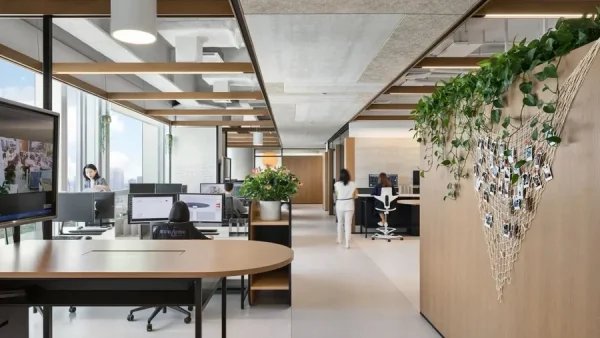Modular Spatial Systems and Display Architecture by Interface Craft

In the fast-paced world of retail and hospitality design, adaptability has become a fundamental requirement. At the forefront of this evolution is Interface Craft, a Barcelona-based studio known for pioneering modular spatial systems and custom display architecture that seamlessly fuse form with function. Their commitment to material quality, engineering precision, and design innovation positions them as a leader in flexible architectural solutions.
Whether designing retail showrooms, pop-up exhibitions, or hospitality interiors, Interface Craft develops systems that evolve with the space. These modular designs—ranging from wall partitions and product displays to integrated lighting structures—are tailored to deliver maximum spatial impact while minimizing disruption and material waste.
The Rise of Modular Architecture in Commercial Spaces
With spatial needs constantly changing due to new customer behaviors, modular architecture provides a highly responsive framework. Interface Craft’s modular solutions allow brands to reconfigure their environments on the fly—an approach supported by ArchDaily’s insights on how modularity promotes longevity and sustainability.
The studio’s systems can be flat-packed, reassembled, or re-skinned with updated materials to match seasonal trends or evolving branding strategies. These benefits make them ideal for retail brands, showrooms, or dynamic hospitality spaces.
Custom Display Systems that Tell a Story
Interface Craft doesn’t design mere shelves or fixtures—they create immersive product environments. Their custom display systems are engineered to draw the eye, encourage exploration, and embody a brand’s visual DNA. Whether using sculptural geometries, integrated lighting, or kinetic surfaces, every element is intentional.
In their recent project for a luxury fashion concept store, Interface Craft developed freestanding display modules using powder-coated aluminum and CNC-carved wood panels—allowing staff to reposition displays based on product launches and customer flows.
This type of adaptable display design is also championed in Dezeen’s commercial design features, where experiential layouts have become a new industry standard.
Materials and Engineering as a Visual Language
Behind every Interface Craft spatial system is a rigorous material study. From ultra-lightweight recycled composites to locally-sourced hardwoods, each choice aligns with the function of the space. Their ability to combine digital fabrication (e.g., CNC, 3D printing) with traditional craftsmanship allows them to offer highly tailored display units that look premium and perform flawlessly.
The modular systems are built for easy transport and assembly without compromising aesthetics—a principle core to Interface Craft’s ethos.
Applications in Hospitality, Galleries, and Trade Fairs
While retail remains a major focus, Interface Craft also brings its modular systems into the hospitality, gallery, and event sectors. In hotel lobbies, they install customizable shelving and partition systems that double as visual dividers and functional display cases. In art fairs, they build pop-up structures that can be installed overnight, adapted to the artist’s needs, and reused in future shows.
This agile approach to architecture is redefining how temporary and permanent spaces interact.
Why Modular Spatial Systems Are the Future
Sustainability, flexibility, and user-driven spatial experience—these are not just trends, but necessities. Interface Craft’s work reflects a growing global shift in design philosophy: one that values performance as much as aesthetics. By using modularity as a framework, they reduce environmental impact, shorten construction timelines, and empower clients with long-term spatial control.
Final Thoughts – Reimagining Display and Space with Interface Craft
Interface Craft is not merely designing interiors—they’re developing systems for how space can evolve. Their modular spatial systems, adaptive display architecture, and commitment to sustainable materials make them a studio worth watching for any brand or architect looking to future-proof their environment.
Whether creating immersive retail environments or adaptive hospitality spaces, Interface Craft continues to lead with purpose, precision, and an architectural vision rooted in craftsmanship.





